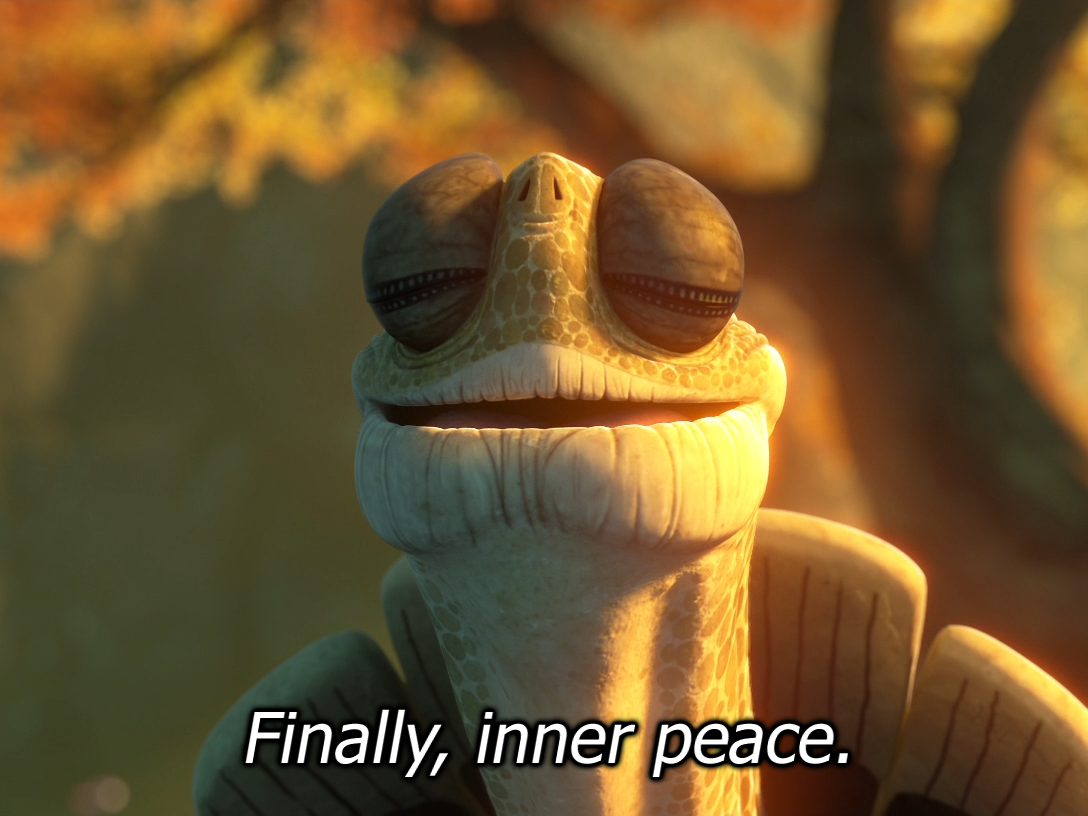PhD applications
Physics 15 mins read

In 2023, I was rejected by all 22/22 US universities. Again, in 2024, I was rejected by all 22/22 US universities (I applied to mostly the same universities with few changes. I mentioned only hep-th profs both times). A few months ago, I applied to a few places outside US, and I finally got a very good PhD admission at the Weizmann Institute in the hep-th group advised by Prof. Aharony and Prof. Berkooz. This blog post might be helpful for future hep-th PhD applicants.
Around 2 AM Boston time on June 4th, I was frequently refreshing to see how many MP seats Modi/BJP/NDA was leading in. Even though, compared to the last two times, he performed poorly and needed a coalition to win, that religious fanatic was still emerging as the winner of the largest election in human history for the 3rd consecutive time. I was disappointed but not surprised. Then I saw an email that I finally got a PhD and stopped caring about the election counting.

First time
For the first time when I applied in Dec 2022, my experience in hep-th was low. In my undergrad university, IITB, there was no one working on quantum gravity. I did work with profs in other related areas, like cosmology. But since I wanted to apply to quantum gravity, I wanted to gain experience in that. So, I read like 60% of Horaƫiu Năstase’s “Introduction to the AdS/CFT Correspondence” in 2 months during my 7th semester (I already took QFT courses before. I was also doing 7 full semester courses during that semester. In India course load is much higher than in USA). And then in 2 weeks, I wrote something fast and posted it on arXiv (arXiv:2211.14893) because I thought it might help me in PhD applications. Even back then I knew it was a bad quality crackpot paper. But I was thinking something is better than nothing. Back then I still had not met anyone who knew AdS/CFT.
All of my undergrad physics batchmates who applied for PhDs got good/famous US universities (my university is the most popular university for undergrad in India and so they all got good PhDs). I was the only one who applied for hep-th and I knew it was the most competitive, but still I felt like an imposter among them. I always used to attend classes properly, but after getting all PhD rejections, I stopped going to classes properly in my last semester and was mostly sitting in my room. I somewhat (but not fully) became a hikikomori. Just like Satō (from Welcome to the N.H.K.) in the below clip, whenever I used to go out, I imagined people in silhouettes thinking this guy is a failure.
Reasons why I did poorly:
- Mainly lack of experience in hep-th. More than a decade ago, if your experience was in cosmology or some other field, it was still fine and you could still get a PhD by mentioning hep-th. But nowadays the competition has increased a lot and you should have a lot of knowledge and experience in hep-th itself.
- If you haven’t done your undergrad in the USA, your chances will be lower.
Second time
After the above disaster, I thought I should do masters at a place where I can work with profs who are working on quantum gravity. I got accepted to all 3 master programs I applied: Brandeis, Weizmann, KU Leuven. I went to Brandeis because back then I was only interested in the It from Qubit approach to quantum gravity1 and it was better for that approach. Right now, I am interested in both string theory and It from Qubit. Looking back, I should have gone to Weizmann because it was fully funded with stipend and I wouldn’t have put financial burden on myself and also it would have given me much more time to improve than the 3 months I got in my 1 year masters. Back then (due to my immaturity), I was critical of string theory otherwise I would have gone to Weizmann. I think the second pop-science book I read in high school was Smolin’s Time Reborn (after A Brief History of Time. Both were pirated PDFs that I never completed reading) and I also read Smolin’s criticism of string theory. Later in the beginning of my undergrad I followed Sabine Hossenfelder, Peter Woit etc. So, from many years, I was somewhat critical of string theory even though I never read it. During my masters, I took a string theory course at Harvard that covers Polchinski Vol 1 and after learning it once, I think it is very very promising. NEVER MAKE AN OPINION BEFORE YOU STUDY IT. As the greatest fictional martial artist once said, “Sometimes life’s too uncertain to have regrets”. So, no point in regretting about where I should have gone.
In the first 3 months of my masters, I did enough research and I should have atleast gotten 1 out of those 22 PhD in US, you can check my back then CV at CV2023. But unluckily, I didn’t.
Reasons why I did poorly:
- Probably 3 months was too small. By the time I applied to non-US universities I got more time and that is why I did better.
- Luck is also a big factor. I have seen many students with less exeprience than me getting PhDs. See the below 2 quotes by Prof. Daniel Harlow taken from mit.edu/~harlow/
“Sometimes you get lucky, and sometimes you don’t. For better or for worse, luck plays a substantial role in determining scientific success. All the knowledge and persistence in the world will not help if you are working on the wrong problem, and depending where you are and who your advisor is you will be exposed to very different problems. Some people just happen to be in the right place at the right time, and some people face more obstacles by virtue of who they are and/or where they are from. You need to be ready to take advantage of good luck when you get it, and you need to be philosophical when you don’t. Even though sometimes it really isn’t fair.”
“Your research experience doesn’t need to be in the same field that you want to work on in graduate school: that you did it well is what counts. It is crucial that in your application you are as honest as possible about what you are interested in and who you hope to work with. Every year we have candidates who want to do theoretical physics, but make no mention of this in their application because they are told that it would make it harder for them to get in. This is academic dishonesty, and if you do it you are going to be disappointed when you arrive and find that the theory spots are filled by people who were more honest than you.”
He also explained clearly that just because hep-th PhD admissions are hard, don’t think like you should not mention this field and mention others and after joining, you can find a hep-th advisor.
Why I want to do hep-th
Many friends etc, were asking me why can’t I just change my field and apply to a different field to get a PhD. I will try to explain my very SUBJECTIVE viewpoint about why I think this field is interesting and why I want to work in this. Of course, different people will think differently; a biologist might think developing cure to diseases is more meaningful than fundamental physics. My main reason is reductionism. I am fascinated by the fact that all physical phenomena can be reduced to fundamental laws of physics. Weinberg explained it better than anyone.
“Most of us do elementary-particle physics neither because of the intrinsic interestingness of the phenomena that we study, nor because of the practical importance of what we learn, but because we are pursuing a reductionist vision. All of the properties of ordinary matter are what they are because of the principles of atomic and nuclear physics, which are what they are because of the rules of the Standard Model of elementary particles, which are what they are because…well, we don’t know, this is the reductionist frontier, which we are currently exploring.”
“The effort to understand the universe is one of the very few things which lifts human life a little above the level of farce and gives it some of the grace of tragedy.”
“The scientist does not study nature because it is useful to do so. He studies it because he takes pleasure in it, and he takes pleasure in it because it is beautiful. If nature were not beautiful it would not be worth knowing, and life would not be worth living. I am not speaking, of course, of the beauty which strikes the senses, of the beauty of qualities and appearances. I am far from despising this, but it has nothing to do with science. What I mean is that more intimate beauty which comes from the harmonious order of its parts, and which a pure intelligence can grasp.”
I think it doesn’t matter if these laws are elegant. It doesn’t matter if I find these laws interesting. It doesn’t matter if I am not good at that. These are secondary considerations. This is one of the few paths that I find meaningful. And reductionism is alone enough for me to find it meaningful. Below is a list of career options and comparing it to hep-th. There are things like becoming like Goku, which are not realistic because our laws of physics will forbid such supernatural things. Even if you dedicate your entire life, you will never be able to become strong enough to destroy universes like Goku. Our physical limitations are much worse than our cognitive limitations. Even the strongest human who dedicated his entire life to strength cannot break a strong wall. We might not be able to visualize higher-dimensional curved spaces, but at least we can exploit mathematics and make progress. So, our limitations to understanding things are much less severe. See the footnote for why I wrote ethical progress as unrealistic.
| Job | Meaningful | Interesting or Not boring | Realistic | Financial |
|---|---|---|---|---|
| Quantum gravity/String theory research | ✓ | ✓ | ✓ | ✓ |
| Watching anime every day | x | ✓ | ✓ | x |
| Industry job | x | x | ✓ | ✓ |
| Biology research like life extension | ✓ | x | ✓ | ✓ |
| Ethical progress | ✓ | x | x | x |
| Universe level martial artist like Goku | ✓ | ✓ | x | ✓ or x |
My childhood aim was to do cosmology. I do want to research in cosmology at some point but not in the immediate future. It will be better to do cosmology after we understand quantum gravity/string theory more properly. I was working on an approach to explain the Hubble tension during my undergrad. When I saw arxiv.org/pdf/2103.01183#appendix.B, I was disappointed because there were already TOO MANY GOOD explanations for the Hubble tension. To me, that lack of uniqueness was very discouraging. There is very little chance you are right. When it comes to a problem like quantum gravity, we have a lot of uniqueness pointing towards string/M-theory as the correct theory. Of course, this is again very subjective. If you value falsifiability more than uniqueness, then cosmology will look better to you. All those 100s of good explanations for the Hubble tension will be falsified after some years except one. Even though Popper convinced many that his falsifiability has completely solved Hume’s Problem of induction, I don’t think falsifiability contributes much to that unsolvable problem. So, I don’t care much about falsifiability. Let me quote this joke by Swamp Thing.
“Early universe cosmology without UV completion is religion.” Source
When you are feeling down, check the below scene from Berserk. It means all the more when it comes from the guy who is “the struggler”.
Also these songs: 1) Hajime No Ippo - Ending 1 - Yuuzora No Kami Hikouki 2) BERSERK ~Forces~ by Susumu Hirasawa 3) Great Teacher Onizuka Ending Season Last Piece 4) Berserk - Sign 5) The End Of Evangelion - Komm Süsser Tod. For more music, you can check this and this.

I was afraid I will have to forever apply to hep-th PhDs. I didn’t want to leave the field without even doing a PhD. So, I am happy2 that I finally got a PhD. That too, I got a place that is one of the best fits for me because I can do both string theory and It from Qubit toy models like DSSYK.
The one thing I want to change from now on is that I want to stop being a procrastinator. I often procrastinate things until the deadline is close, and even if I work hard at that point, the time won’t be enough. One bad thing about procrastinating is that “the final deadline” will always come without telling you. So, I should stop procrastinating.
This summer (4 months left), I wanted to write these FP notes and mostly complete them and then write some parts of QG notes. I am also continuing my masters research. I also kept reading Vagabond manga and watching Gintama anime on hold since 2022. I should go back and complete those. There are always too many things one can do and human lifespans are too tiny to do all the interesting things.
TL;DR: I think governments everywhere should increase the funding for hep-th so that interested students can do PhD in this field.
If you don’t know what “It from Qubit approach to quantum gravity” means, then check out this arXiv:2108.09188 nice review by Bartlomiej Czech et al. ↩
I know it might seem selfish that I am happy that I got a PhD when many civilians in Gaza are suffering. Many innocent people on both sides died. Also, it is not the only conflict that is going on; there are many others. Ethiopian civil conflict (2018–present) is still ongoing even after 600,000+ (1,2) people died. Syrian civil war is still ongoing even after 600,000+ people died. For some reason, a lot of students in the US who are doing activism for this have never even heard about the Syrian civil war etc, even though more people died in that war. To me, it all looks like a fad. I don’t follow fads. But I am a pacifist and think war is a bad thing. I have commented in the past about the Syrian civl war etc, see for example, this. But there are much bigger problems. Humans unnecessarily kill TRILLIONS (1,2,3,4) of sentient beings EVERY YEAR (yes, TRILLIONS, not billions, and the number is increasing. This number is so huge that every other tragedy (wars, genocides, etc) that happened on this planet pales in comparison). Even if one dedicates one’s entire life, one can still only reduce an infinitesimal fraction of the suffering that exists on this planet. Of course, I do take morality seriously and try everything I can to not cause any harm and do all my moral obligations. But when it comes to the suffering not caused by me, I certainly would want to try to remove it even though I am not obligated to do it, but there is just too much suffering and it is discouraging that one cannot remove a finite fraction of it. This is why even though Ethical progress is more meaningful than physics since it is much harder/impossible, it is better to do something like research in physics, making progress in which is more realistic (that is why ethical progress is given “x” for realistic in the above table). ↩
